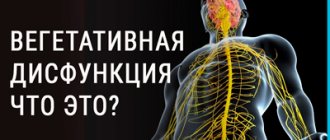Daily stress, poor diet, poor sleep patterns - all these factors negatively affect the body. This rhythm of life often contributes to panic attacks. But, of course, the reasons are not only stress and a busy schedule. Much depends on the biochemistry of a person and his psychological state. Sometimes panic attacks can occur as a result of an illness.
Every person, at least once in his life, has experienced anxiety, panic, and numbness. Such reactions are quite normal in certain situations, such as those involving a threat to life or health. When panic occurs, the body produces stress hormones: adrenaline and norepinephrine. These substances help mobilize all resources for action - for example, running or fighting. If there are no real threats, and the body cannot use this state for its intended purpose, a panic attack occurs. At the same time, the pressure rises sharply, the pulse quickens, and the breath takes away. People suffering from panic attacks experience similar symptoms. Even 20 years ago, doctors considered this to be vegetative manifestations and diagnosed “Vegetative-vascular dystonia” or “Sympathoadrenal crisis.” The patients were not offered any specific treatment, much less a visit to a psychotherapist. Doctors believed that this was a minor somatic illness. In fact, panic attacks can lead to more serious illnesses. For example, a regular increase in blood pressure can provoke ailments such as hypertension, stroke, depression, and neurosis. In some cases, panic attacks can be repeated daily and cause enormous discomfort to the person. It is believed that the widespread occurrence of panic attacks was influenced by an increase in stress factors. But similar symptoms were described back in Ancient Greece. So don’t think that this is some kind of newfangled disease. The problem, rather, is in the correct diagnosis of panic attacks and in the proper prescription of treatment for this disease. It often happens that people suffer for years before they discover the reasons and get help. Sometimes panic attacks go away on their own. Or the symptoms become so minor that they do not affect the quality of life.
What are panic attacks and why do they happen?
A panic attack is a condition in which a person experiences inexplicable, overwhelming fear and severe anxiety. During attacks there is a sharp release of adrenaline and norepinephrine. This is a psychophysical reaction to danger. It is believed that about 10% of the world's population suffers from panic attacks. More than half of them are women. More than 2/3 of people suffering from panic disorder try to cope with the disease on their own. It happens that lack of treatment leads to various mental illnesses. A timely visit to a doctor will help solve this problem.
The attack is accompanied by unpleasant symptoms:
- high blood pressure (up to 220 to 170)
- heavy sweating
- fever or chills
- labored breathing
- lump in the throat
- increased heart rate (more than 120 beats per minute)
- tremors and numbness of the limbs
- nausea
- vomit
- dizziness
- depersonalization
- fear of dying or going crazy
Symptoms usually last from 5-10 minutes to several hours. There are repeated cases of frequent attacks during the day. Sometimes a panic attack can last up to 24 hours. With regular attacks, we can talk about panic disorder. In any case, only a specialist can diagnose the disease. If you find one or more of the above symptoms, this is a reason to consult a doctor.
The occurrence of a panic attack depends on many factors. According to patients, the first signs may appear some time before the attack itself. Early symptoms often include severe fatigue, along with unexplained anxiety, blurred vision, and chest pain. A panic attack can be triggered by stress, whether positive or negative; memories associated with the traumatic event; threat to life and health, state of alcohol and drug withdrawal. Often, panic attacks are directly related to some disease: a violation of somatophoric functions, depression, PTSD, endocrinological and cardiovascular problems, and various phobias. Seizures may occur when taking certain medications. If you are prone to panic attacks, be sure to tell your doctor who prescribes your medications.
People suffering from anxiety syndrome are susceptible to panic attacks. With this disorder, the human body produces abnormal amounts of adrenaline and norepinephrine. Therefore, in case of panic attacks and constant anxiety, experts recommend getting tested for these hormones to determine the cause of such conditions. In some cases, consultation and treatment with a neurologist is sufficient, but most often the symptoms develop further and the person requires more serious therapy.
Another reason for panic attacks is various phobias. For example, in people with a fear of closed spaces, a panic attack begins when they get into an elevator, a closed room where a person cannot control the exit, or public transport. In essence, this state is a psychophysical reaction to danger, in the absence of a real threat. Regular panic attacks greatly affect your quality of life. It is difficult for such people to get to work, to the store, or to the doctor. Restrictions due to panic attacks often lead to depression, depression, and suicidal thoughts.
Very often, the first attack of a panic attack occurs during physical or mental stressful situations. The cause may be heavy sports activity, overwork at work or study, and even a large amount of tea or coffee.
Protracted conflict or being in a stressful situation for a long time also provokes panic attacks. A person creates a state of panic, constantly expecting something bad. From a psychological point of view, these types of attacks arise from the suppression of emotions, the inability to recognize one’s own negative feelings and work with them. In such cases, the likelihood of recurrence of panic attacks increases.
If an episode of a panic attack does not recur for a long time, the person usually forgets about it. In the case of regular panic attacks, there is a fear of new panic attacks. Fear causes the release of adrenaline and a person ends up in a vicious circle. A panic attack begins to control a person’s life.
Another factor influencing panic attacks is genetic predisposition. If any of your relatives suffered from an illness such as panic disorder, then it is likely that the disease was inherited. At the IMC Addiction By Yuzapolsky clinic, we pay special attention to the genetic aspect when diagnosing and treating panic attacks. Sometimes it is enough to detect hormonal causes, eliminate the imbalance of adrenaline and norepinephrine and get rid of panic attacks forever. It has also been scientifically proven that the occurrence of panic attacks is influenced by a lack of serotonin and dopamine, which help a person cope with stress. Such studies are an excellent prevention for hereditary causes of the disease. For example, you can learn about your children's predisposition to panic attacks and correct their condition before the first symptoms appear.
So, in short, the causes of panic attacks are as follows:
- hereditary factors
- childhood and adolescent psychotraumas
- excess adrenaline and norepinephrine
- lack of serotonin and dopamine
- prolonged emotional stress
- severe stress
- physical injuries
- sleep deficit
- regular overwork
- excessive physical activity
- pregnancy
- alcohol or drug abuse
A panic attack can cause a lot of trouble. Don't delay seeing your doctor.
Psychotherapy
Good results in the treatment of PA are achieved only with a combination of medication, pharmacotherapy and psychotherapy. The central task of the latter method is to gradually bring the patient to an awareness of the essence of the problem. Other goals of psychotherapy:
- identification and elimination of psychological intrapersonal conflicts;
- modification of previous inappropriate reactions to stress;
- developing healthy patterns and attitudes, attitudes and attitudes for learning mature adaptation mechanisms;
- working with self-control and adequate ways of responding;
- identifying the root causes of pathology.
In the cognitive behavioral approach, a psychotherapist or clinical psychologist teaches the patient techniques to control his own thought process. The client learns to understand his own condition and is able to identify factors that provoke anxiety. The nuances of the lifestyle and rhythm of life are examined.
Psychoanalysis helps to discover the subconscious, underlying causes of PA. Other approaches to the psychotherapy of panic disorder are classical or Ericksonian hypnosis, family consultations, and Gestalt direction. Psychotherapeutic relief of symptoms is the most effective method. Treatment takes from six months to 2-3 years. It takes effort from both the therapist and the patient.
How long do panic attacks last?
The duration of panic attacks can vary greatly. We said above that a panic attack can last from several minutes to several hours. It is quite difficult to say what exact reasons influence the time and intensity of the attack. Some patients keep a diary of panic attacks to track why attacks occur. Sometimes such a tool helps to cope with an attack when the first symptoms appear. The fact is that when a person understands what exactly is happening to him, this reduces the intensity of fear, and accordingly the body stops “going crazy” and producing stress hormones in panic attack mode. But, of course, this method is not suitable for everyone.
In any case, if you have regular panic attacks, but have not yet started treatment, there are some tips that will help you cope with a panic attack more easily.
- If a panic attack occurs on the street, then move away from the road and crowds of people
- Carry medications prescribed by your doctor with you and take them in case of a panic attack
- During a panic attack, turn your attention to what is happening around you. Name out loud the objects you see, count passing cars, fingers, etc.
- One of the most unpleasant symptoms during a panic attack is loss of control of breathing. Breathe slowly and deeply. Inhalation, like exhalation, should last at least 4 seconds.
- If you feel that panic is interfering with your breathing, you can breathe into the bag.
- Wear a regular money band on your wrist. When attacking, snap yourself on the wrist with a rubber band. This way, you can concentrate on the physical sensations and take your mind off the panic attack.
Whatever method you use to relieve a panic attack, remember that only a doctor can prescribe the best treatment.
Is it possible to overcome forever
To overcome panic disorder forever, long-term work with a psychotherapist, taking a course of medications, and the patient’s efforts are required. It is important to find the root cause of anxiety - it is often hidden deep in the subconscious. Next, you need to learn how to independently smooth out the symptoms during an attack.
The nuances of therapy depend on the severity of the disorder, its duration, severity and personal characteristics of the body. It is believed that the most severe PAs occur in those patients who perceived the first attack as a fatal catastrophe. The sooner treatment begins, the faster and easier it will be. Full recovery occurs in the presence of two factors - a competent treatment regimen and a lot of effort from the patient.
How are panic attacks manifested and treated in men and women?
The main symptoms of attacks described above are characteristic of both sexes. It cannot be said that there are certain types of panic attacks that are characteristic only of men or only of women. Perhaps panic attacks during pregnancy. But these cases should be considered separately, because In women, during the period of bearing a child, the hormonal levels completely change. Therefore, it happens that panic attacks can begin during pregnancy and disappear after childbirth. If we talk about the symptoms and manifestations of attacks, they are similar for both sexes.
If we talk about psychological characteristics, women in general are more emotional. This quality helps to better understand and experience feelings, the suppression of which often leads to panic attacks. On the other hand, hormonal fluctuations in women can cause panic attacks. Panic attacks can also be associated with diseases of the endocrine system, which is more common in females.
The male psyche is structured somewhat differently. Also, do not discard psychological and social attitudes that lead to panic attacks. It’s sad, but the lion’s share of panic attacks among representatives of the stronger sex occurs due to suppressed emotions. Moreover, men tend to ignore the symptoms that arise during attacks for a long time. The main reason for this behavior is the fear of appearing weak. If men do not consult doctors for symptoms of more serious diseases, let alone any panic attacks. Therefore, when it comes to panic attacks, a man believes that he can handle it on his own, no matter how serious the symptoms may seem.
Treatment of panic attacks should be carried out based on the individual characteristics of each patient, regardless of gender. The treatment process for panic attacks must begin with a consultation with a psychiatrist, psychotherapist and neurologist. Doctors must conduct a full examination, clarify all the symptoms and the regularity of panic attacks. The patient also needs to inform doctors about his individual characteristics (allergies, etc.) and the presence of chronic diseases. To accurately diagnose and prescribe effective therapy, the patient must undergo basic blood tests, hormonal profiles and genetic analysis. If necessary, the doctor prescribes additional examinations, such as head and neck vessels and an electrocardiogram.
Standard treatment for panic attacks consists of techniques such as psychotherapy, drug support, physiotherapy, sessions with an osteopath, and xenon therapy.
Psychotherapy for panic attacks includes:
Cognitive behavioral therapy. During the sessions, the patient learns to perceive panic attacks and to react constructively to the appearance of alarming and unpleasant symptoms during attacks.
Psychoanalysis. The patient, with the help of a psychoanalyst, looks for internal traumas that led to panic attacks. It also deals with pent-up feelings that cause panic attacks.
Consequences
Panic disorder, if the diagnosis is correct, does not go away “on its own.” Sometimes the intervals between attacks are quite long - up to 1-3 months. But without adequate treatment, the time interval between attacks gradually decreases.
Looking at panic attacks separately, researchers conclude that they do not pose a threat to life. But repeated PA without treatment will lead to the formation of depressive disorder, phobias, and neurosis. Over time, a person becomes a hypochondriac, stress resistance suffers, and increased suspiciousness arises.
Letting a disorder take its course is a health hazard. After a few months, the quality of life decreases noticeably. Mental and physical capabilities decline, and performance suffers. People who do not treat mental problems have problems in the area of social adaptation.
Medication support
A psychiatrist is involved in selecting medications for the treatment of panic attacks. A properly selected medication regimen will quickly reduce the frequency, intensity and number of symptoms of panic attacks. Appointments may include:
- Tranquilizers for quick relief of panic attacks. These drugs can cause addiction, so in no case should you increase the dosage on your own and use them daily, just to prevent attacks. These remedies are first aid for a severe panic attack, nothing more.
- Antidepressants for panic attacks. These drugs are used in serious cases where a panic attack occurs due to depression. This indicates a serious stage of the disease, which may require not only treatment for panic attacks, but also treatment for depression in a hospital.
- Beta blockers. The drugs quickly reduce high blood pressure and tachycardia during panic attacks.
- Nootropics. People suffering from panic attacks often complain of problems with memory and thinking in general. These drugs help improve blood circulation and brain performance.
What happens during an attack
The patient’s first attacks occur after a strong emotional shock; it is this that provokes the severity of the disease increasing each time. Next, a certain trigger is needed for the paroxysm to take possession of the person again.
A similar factor may be close contact with other people, strong sound or unpleasant smell. Most often, triggers are associated with a traumatic situation. At first, the heart rate increases, the sweat glands begin to work to the maximum. They produce a large amount of sweat, perspiration appears on the forehead, and their hands become damp.
After a few minutes, panic sets in, the manifestation of which will vary from person to person. Some experience a strange feeling of confusion, forget where they are going, others are overcome by severe fear. They seem to freeze in one place, not finding the strength to make any movement.
The attack can last several minutes, for some it ends after one or two hours. The specificity of PA is the high rate of increase in symptoms. After the first attack, there is constant anxiety and concern for one’s health on a subconscious level. All organs and systems can operate uninterruptedly. Our clinic provides treatment for mental disorders; here you can undergo treatment for mental retardation and schizophrenia, and receive professional help in correcting the consequences of dementia and other pathologies.
How to behave during the interictal period
Therapy for panic attacks during periods of calm includes several key points. The main thing is to get rid of stress, traumatic situations and internal tension.
It is very important to increase the body's ability to withstand stress. A set of measures will help with this .
- Learn to control your emotions and actions, take responsibility for them. To do this, analyze situations, your decisions, why you acted this way and not otherwise, what would have been better for you to do in this case. Write down your thoughts. If you have made wrong actions, review them and build a model of correct behavior. Now you know how to behave in a similar situation.
- Let more positive emotions into your life. Watch pleasant, funny films, do what you love more often, communicate with positive people. Try to be alone less.
- Stop making derogatory remarks about yourself. Praise yourself for your achievements, accept your shortcomings and work on them. Don't make comparisons between you and other people. Pay attention to yourself, look after yourself.
- Try not to mentally return to traumatic situations that happened to you in the past. To avoid reliving negative emotions. Try to remove all things that may remind you of this event.
- Find something you like. Direct your energy to creativity, not to dark thoughts.
Meditation will help you relax. It will relieve not only emotional tension, but also muscle tension. There are professional practices that require special training and knowledge of techniques.
At the everyday level, you can meditate by turning on relaxing music and taking a comfortable position. The best way to do this is to lie down. Close your eyes or focus on one object. Breathe deeply, evenly and mentally repeat the pre-prepared phrases: I am calm, my fear is receding, I have everything under control, and any other phrases adapted to your condition.











